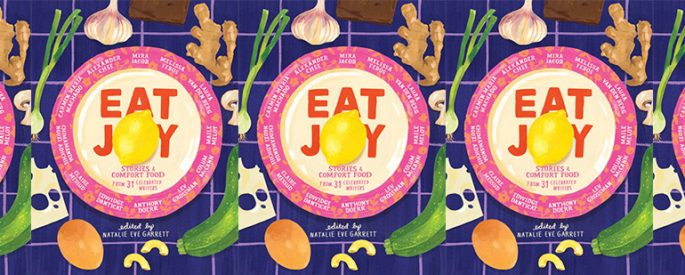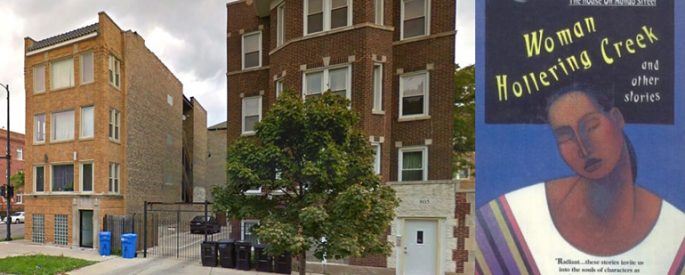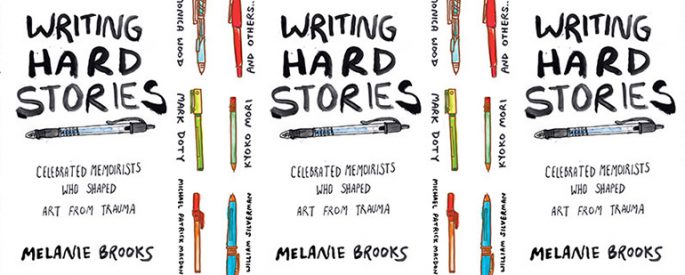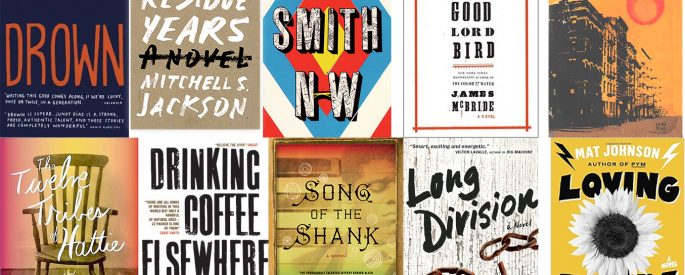Sandra Cisneros Archive
The Meaning of Food in Eat Joy

In this 2019 anthology, Natalie Eve Garrett collects short essays by 31 different writers, each with a recipe linked to it. The essays reveal how foods hold the shape of memories and people and places, nourishment intertwined with the forces that shaped it.
An Interview with Sandra Cisneros

Although Sandra Cisneros is most widely known for her authorship of beloved fiction books like The House on Mango Street and Caramelo, she calls herself, first, a poet-activist.
The Limits and Freedoms of Literary Regionalism: How Sandra Cisneros’s Chicano Literature Reimagines Chicago’s Borders

Woman Hollering Creek and Other Stories asks us to imagine literary regionalism as more than just literature set in a single place, but as fiction’s ability to funnel different places and the experiences they birth into one environment.
Review: WRITING HARD STORIES by Melanie Brooks
Author: Guest Reviewer | Categories: Book Reviews, Critical Essays, Nonfiction, Writing Advice No comments

Sharply written, these intimate and insightful exchanges dispel the myth that perhaps we all, writers or not, have come to believe about our own narratives, our own lives: “The worst story that we can tell ourselves is that we are alone.”
Big Picture, Small Picture: Context for Sandra Cisneros’ The House on Mango Street

Chicago, 1980. A young woman taps at a typewriter in the small kitchen—the only room with heat—of a rented apartment on North Paulina Street, square in the center of the Bucktown neighborhood.
Reading in a Brown Body

During my first week of college, at the University of Iowa, several of us students were playing cards in my dorm room, when, unrelated to the game or to the conversation, one of the other freshmen asked me, “What are you?”
A Recommendation

Just west of Houston, before you reach Texas’ most remarkable stretch of nothing, there’s a crumbling Latin diner I take my kid brother on Fridays. It is refreshingly un-Yelpable. The family’s owned it forever. They’re almost native in their darkness, and when I order two beers, they’ve pitched us
The Millennial-Gen X Rift Part II: the MFA System And A Digital Latina/o Literary Renaissance

Hector Tobar wouldn’t be the first to speculate about a contemporary Latina/o literary renaissance. That hype has been around for a long, long while. It surrounded the work of Gen X Latina/o writers beginning to publish in the mid to late 90’s and early 2000’s of which Junot Diaz
The Millenial-Gen X Rift And The Trouble With Latina/o Letters
“Hector Tobar is our new hero,” a close friend of mine, a well known Chicano writer, proclaimed to me last week. I was back home in Austin. We were at the Whitehorse. He said it as if it were up for discussion in the first place. “I’m totally with
Is Chicana/o Literature Dead? (A: No, not really): A Teacher’s Ramblings
It used to be that I didn’t know what Chicana/o literature was. Sometimes I still think I don’t, which is embarrassing because I teach classes on Chicana/o lit. The dictionary definition is easy—it’s been studied, chronicled, crystalized–and I can easily think of my heroes: Helena Maria Viramontes, Dagoberto Gilb,